Ancient Remedy That ‘Treats All Diseases’ HIV, Diabetes, Cancer, Stroke, STDs, Arthritis (Video)
by N.Morgan
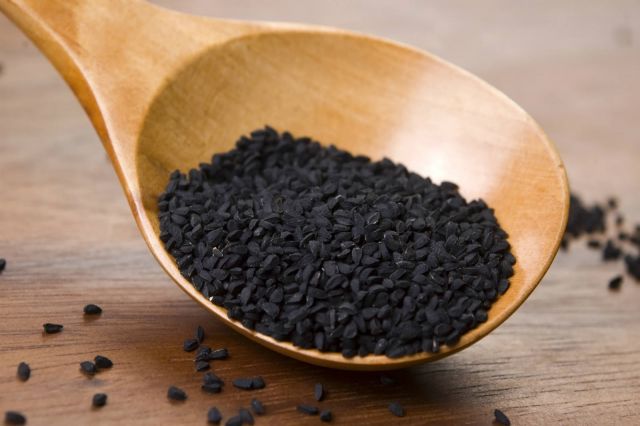
Black Cumin Seed Carrier Oil is derived from the seeds of the Nigella sativa botanical, better known as the Fennel Flower.
It is also commonly known by various other names, including Black Oil, Baraka, Fitch Oil, Kalajira Oil, Kalonji Oil, and Love in a Mist, to name only a few. Black seed oil (also called black cumin seed or Nigella sativa) has been scientifically proved to be an incredible anti-cancer treatment in animal studies, and its effect can be applied in the case of several cancer types.
This beneficial herb grows in countries bordering the Mediterranean Sea and India, and Thymoquinone is its most popular active ingredient. Namely, this oil and its extract thymoquinone are amazing in the treatment of numerous different inflammatory issues, as well as in the case of various types of cancer, including cervical cancer, breast cancer, brain cancer, liver cancer, prostate cancer, bone cancer, lymphoma, stomach cancer, colon cancer, melanoma skin cancer, and pancreatic cancer.
Black cumin seed oil prevents cancer cell activity and is able to different cancer cell types. The positive effects of black seed oil have been confirmed in numerous studies conducted in the past several decades, and it has been also found that there are only small risks of negative side- effects. Yet, researchers have rarely elevated their work to a higher level, that is, to human clinical testing.
This article will discuss the findings of numerous studies that have pointed out that this oil is extremely beneficial in preventing and treating different cancer types. However, conventional medicine still hasn’t approved it as a useful treatment. There are a few issues linked to this problem, as some political pressures which postpone clinical research with human cancer patients, and drug companies which would normally not benefit from this oil, and would rather suppress its use.

Black Seeds have been used to Treat Cancer for Thousands of Years
Two separate studies conducted in 2011 by Chinese and Saudi Arabian researchers, examined the scientific literature concerning the use of this oil and its benefits in the case of cancer and found that it is a completely safe and effective cancer treatment. Moreover, they showed that black seed oil has been used for centuries, and it, as well as its extracted ingredient, thymoquinone, provides incredible effects in the case of numerous health conditions, like diabetes, kidney disease, asthma, cancer, cardiovascular complications, etc.
This remarkable oil is a powerful agent in fighting skin, cervix, prostate, breast, lung, kidney, liver cancer, as well as in cancer in the blood system. According to these researchers, the molecular mechanisms responsible for its anti-cancer role are still not clear enough. Yet, thymoquinone was found to act as an antioxidant and to boost the defense system of the body. Black seed oil causes apoptosis, so it promotes a systematic elimination of cells that are no longer needed, are old, or unhealthy ( as cancer cells), and do not release toxins into the body. Moreover, this beneficial oil is also responsible for the control of the Akt pathway, that is, the process that helps the survival of normal and cancer cells.
Strong cancer-fighting properties of this oil have been used and recognized for ages, yet, this traditional health miracle has become a subject of research of modern science in the last 2 or 3 decades.
Black Seeds and Honey
A research conducted in Egypt examined the beneficial effects of the combination of bee honey and Nigella grains on the oxidative stress and the created cancer. The research was conducted on rats that were subjected to a strong carcinogen. Rats were divided into four groups and exposed to the same carcinogen, but some of them were given black seeds or honey, and one of the groups was given a combination of honey and black seeds. Rats were examined for a period of 6 months.
In the end, the findings showed that rats that consumed black seeds were 80% protected against oxidative stress and cancer formation while those that were given a daily dose of the combination of black seeds and honey enjoyed a full, 100% protection against oxidative stress, cancer formation, and inflammatory responses.
Black Seed Oil Helps In The Case Of Radiation Treatments
A study conducted in Turkey in 2014 demonstrated that black seed oil may help individuals while receiving radiation treatment for cancer. In this case, patients experience numerous severe side effects due to radiation. Therefore, researchers tried to evaluate the effects of irradiation and the addition of this oil on the oxidant/antioxidant system in the liver tissue of irradiated rats. Some rats were exposed to a single dose of gamma radiation. The control group was not irradiated. Moreover, one group was given one gram of black seed oil per kilogram of body weight an hour before the radiation treatment and a daily dose afterward for a period of 10 days.
Another group of rats received the radiation treatment and afterward received a saline solution instead of black seed oil. Findings pointed out that black seed oil has strong antioxidant properties, which also increases the antioxidant capacity in the rats’ liver tissue, and also lowers oxidative stress markers. Hence, researchers proved that the use of this miraculous oil before or 10 days after a radiation treatment prevented the detrimental effect of radiation.
Scientists in India conducted another study in 2012 and examined the effect of the black seeds on mice exposed to gamma radiation. They tested two groups of mice: one normal group and one consisting of tumor-bearing mice.
The aim was to mimic the human clinical setting where normal tissues of cancer patients are subjected to the detrimental effects of the therapy with radiation. Before gamma radiation, mice received 100 mg of black seed extract per 1 kg of body weight. Findings demonstrated that the extract of black seed provides prevents liver, spleen, brain and intestine damage due to gamma radiation in the case of normal and mice with tumors. Hence, it was concluded that this extract prevents the destroying effects of radiation, and protects against biochemical alterations. This property was found to be due to its powerful antioxidant properties and its ability to scavenge free radicals.
Therefore, it can play a major role in human cancer patients who receive radiation in order to protect against oxidative stress in normal tissues and to reduce other side effects of radiation therapy. This would significantly improve the quality of their lives.
Black Seeds Prevent Uncontrolled Cell Growth and combat Liver Cancer Cells
The use of thymoquinone, a compound derived from black seeds, was examined in a study in 2013 in India. Researchers studied 2 groups of rats with liver cancer, and one group received a water that had 0.01% thymoquinone, and the other group consumed plain water. Then, the tumor markers, liver cancer nodules, and liver injury markers were evaluated in both groups after 4 months. Those rats that did consume the thymoquinone had a significant rise in the size of the liver tumor.
On the other hand, the other rats that had 20 mg of thymoquinone per kilogram for body weight had significantly lowered liver injury markers and reduced tumor markers. Moreover, these rats did not develop liver cancer nodules, and the amount of new tumor formation was much less when compared to rats from the other group.
This led to the conclusion that thymoquinone acts beneficially in liver cancer treatment since it successfully inhibits the proliferation of cancer cells. Another Egyptian study from 2012 examined the cancer-fighting effects of bee honey and black seed oil on human liver cancer cells in laboratory experiments.
They evaluated the antioxidant power of honey and black seed extract, and their ability to combat unhealthy cells.
Eventually, it was found that both of these were incredibly effective in reducing liver cancer cell growth. Moreover, they caused the death of cancer cells by apoptosis and enhanced the antioxidant status of cells.
Black Seed Oil Kills Lung Cancer Cells
In 2014, Saudi Arabian scientists stated that traditional medicine has used black seeds to treat many diseases. The anti-inflammatory, antibacterial and antioxidant properties of black seed oil were popular and commonly used.
They evaluated the cancer-fighting activity of black seed oil and black seed extract in human lung cancer cells in laboratory conditions. Lung cancer cells were subjected to black seed oil or to black seed extract for 24 hours. Scientists used 0.01 mg/ml to 1 mg/ml of the extract or the oil or the extract. Afterward, the growth of cancer cells was evaluated.
Scientists found that exposure to black seed oil or black seed extract greatly lowered the population of living cancer cells and changed the morphology of cells. Namely, it was discovered that the greater the concentration of the extract or the oil used in the treatment, the greater the level of cell death. Furthermore, both of these stimulated the loss of the typical appearance of cancer cells, and they became smaller.
This data proved that black seed extract and black seed oil greatly impede the development of human lung cancer cells.
Black Seed Kills Brain Cancer Cells
A study conducted at Ohio State University in 2013 found that glioblastoma is the most common and aggressive kind of malignant brain tumor in people, with a median survival of 15 months. Therefore, researchers stated that there is a significant need for extra therapies of glioblastoma. Scientists have suggested the use of natural phytochemicals as they have powerful anti-cancer properties.
One of the bioactive compounds of black seed oil, Thymoquinone, has strong anti-cancer, anti-oxidant, and anti-inflammatory effects, as well as selective cytotoxic properties for human cells. This means that it fights human cancer cells, but does not affect the healthy cells in the body. Moreover, thymoquinone selectively impedes the ability of glioblastoma cancer cells of the brain and spinal cord to create their clones. Yet, it does not impede normal cell activity in the human brain and spinal cord.
Also, it effectively inhibits autophagy genes in cancer cells. Autophagy in cancer cells maintains the production of cellular energy, and thus promotes the growth of tumor cells. Logically, if autophagy is prevented, then the production of cellular energy for cancer cells will also be damaged. The result of this will be a regression of tumor activity, so cancer-affected organs will survive. Hence, thymoquinone can be extremely beneficial in cancer therapies as it has a powerful ability to prevent cancer cell cloning and to inhibit autophagy.
Black Seeds Kill Breast Cancer
Another study conducted in Malaysia in 2013 studied the cancer-fighting ability of thymoquinone in the long-term treatment of human breast cancer cell lines in the laboratory.
They discovered a sustained ability to prevent breast cancer cell proliferation with long-term treatment. The length of inhibition was determined by the size of the thymoquinone dose influenced the length of this inhibition, meaning that the larger the dose was, the bigger was the inhibition produced.
Black Seeds Destroy Leukemia Cells
A 2013 Malaysian study reported a growing interest in the use of naturally occurring compounds from traditional anti-cancer medicines. Nigella sativa (black seed) is one of the most commonly examined plants, due to the cancer-fighting abilities of thymoquinone, through the process of apoptosis.
Researchers discovered that thymoquinone therapy of leukemia cells with stimulated apoptosis caused the death of cells, suggesting it to be a potential leukemia cure.

Black Seed Oil Destroys Colon Cancer Cells
The University of Mississippi Medical Center conducted a study in 2007 that stated that the chemotherapy drug 5-fluorouracil remains the chemotherapeutic gold-standard for the treatment of colon cancer, but it can have numerous harmful side- effects, as it kills both, unhealthy as well as healthy cells.
Their study was, in fact, a response to previous studies stating that antioxidants deter certain disease processes, particularly cancer. Therefore, the tier study included epigallocatechin-3-gallate, the most abundant catechin in green tea, and thymoquinone, the essential anti-cancer ingredient of black seeds.
The study evaluated the role of sustained delivery of catechin from green tea, thymoquinone from black seeds, and the chemotherapy drug 5-FU on the structural changes in human colon cancer cells, as well as the metabolic activity, in laboratory cultures. Findings demonstrated significant destruction and interference with the cellular metabolic functions in the case of green tea catechin and black seed thymoquinone, which was proportionate to cells subjected to sustained drug delivery of the chemotherapy drug 5-FU.
The morphological cell alterations took place after exposure to green tea catechin and thymoquinone for 24 hours, which was equal to the cellular changes in cells exposed to the chemotherapy drug 5-FU. This showed that these two natural agents may provide the same benefits in the case of colon cancer, but avoid all the harmful side-effects.
Lebanese researchers in 2004 confirmed the amazing power of black seed oil to prevent and treat cancer. They stated that black seed and black seed oil have been used in Africa, Asia, and the Middle East and Africa to prevent numerous diseases and to successfully treat the existing ones.
“Thymoquinone, the most abundant constituent present in black seed, is a promising dietary agent for preventing cancer. We investigated the effects of thymoquinone against human colon cancer cells. We report that thymoquinone inhibits the growth of colon cancer cells. Our data support the potential for using thymoquinone for the treatment of colon cancer.”
Black Seeds and Helicobacter pylori Infection
Saudi Arabian research in 2010 claimed that the root of numerous diseases is, in fact, Helicobacter pylori (H. pylori), especially peptic ulcer disease, gastric cancer, and chronic active gastritis. Therefore, the effective treatment of this infection will treat these associated diseases. Yet, it becomes growing resistant to antibiotic therapy, so it needs to be treated in a new way. Black seeds have powerful anti-helicobacter properties.
Therefore, this study examined their efficacy in the elimination of H. pylori infection in 88 human non-ulcer dyspeptic patients. Patients were randomly divided into 4 groups and received four different combinations of clarithromycin and/or amoxicillin (antibiotics), omeprazole (anti gastric reflex drug), and black seed oil.
Black seeds were found to have the strongest anti-H. pylori activity, comparable to the combination of all three drugs.
Linking Thymoquinone to Conventional Cancer Treatments
Newest research found another protective effect of thymoquinone, against the cardiotoxicity of the chemotherapy agent doxorubicin. Hence, this means that thymoquinone boosts the anti-cancer effect of doxorubicin in some cancer cell lines.
A study conducted in Singapore in 2013 showed that there is a reduced number of therapeutic agents for cancer, and affected cells are becoming resistant to them. This points out the need for new anti-cancer agents. The powerful anti-cancer properties of thymoquinone were used to treat mice with breast cancer and were discovered to reduce cancer growth. This remarkable effect was boosted by combining it with doxorubicin.
Human Clinical Trials
The review of the published studies about black seeds by the researchers from Wayne State University in Michigan claimed that there is a great need of new studies that will examine the bioavailability and Phase-I toxicity profiling in human subjects. However, a researcher from Oman believes that thymoquinone has been extensively studied, in test tube research with human cancer cells, as well as in animal studies with induced forms of cancer.
Due to those studies, we have generated a significant amount of data and now it is time to move the research to clinical experiments.
Conclusion
The existence of over 120 scientific research studies on the use of black seed oil and thymoquinone in the case of different cancer types poses a question of why are they still laboratory studied. If the black seed oil, as well as its extract, contains so powerful cancer-fighting properties, and their use has no side effects, then why the medicine does not use these findings? Black seeds have been commonly used throughout human history. Traditional folk medicine has been using its numerous health benefits since the time of the Egyptian Pharaohs.
Namely, researchers discovered black seed oil in the tomb of the Egyptian Pharaoh Tutankhamen. Moreover, archeologists also found a mixture of black seeds, beeswax, and honey in north-central Turkey, placed in a pilgrim flask from the Old Hittite Period level of Boyall. H ö y ü k(Mound), dating from around 1650 BC. And despite all this, black seeds are still locked in laboratories as some unproven medicine.
First of all, they are edible, can be used to enhance the flavor of foods, and are added to remedies and tonics for thousands of years. Therefore, why to still test them whether they are safe? We just need to develop a procedure in which we can use their benefits. Therefore, we need to conduct clinical trials. The reason for this situation is due to the pressure and control of pharmaceutical companies. Namely, conventional chemotherapy drugs have reduced effects, studies show that the combination of black seed oil and conventional drugs provides better effects, when compared to the effect of chemotherapy drugs by themselves.
Also, research has also found thymoquinone to be equally effective as chemotherapy drugs at times but provides no detrimental side- effects. In terms of profit, this is no good news for the pharmaceutical industry. Another important issue is patenting. Namely, the pharmaceutical industry tends to gain control over a natural substance and add it to an existing drug with an expiring patent and create something “new” which can, of course, be patented. This was the case with folate (vitamin B9), and the FDA helped the entire strategy.
Therefore, pharmaceutical companies would rather add thymoquinone to their ineffective medications, and boost their effect. Thymoquinone has been found to be equally effective as chemotherapy drugs and has no side effects, but they cannot profit from its use. Due to all this, there is no interest or funds to stimulate human trials with a natural substance like black seed oil or thymoquinone, as they cannot be patented and are not profitable.
The sad truth is that billions of people are suffering fro cancer, and experience all the unpleasant symptoms of conventional treatments while they can help themselves by using natural remedies. Studies have shown that black seed oil successfully prevents radiation damage to healthy tissue if taken before radiation therapy and regularly afterward. Yet, the fact that these findings have never been published is extremely offendable against people who undergo radiation treatment to treat their cancer. This miraculous oil has a remarkable protective ability in the case of radiation and chemotherapy and is a powerful anti-cancer agent. Yet, we have no information on how to use it, as there is no research to confirm an effective protocol with a determined dosage.
Yet, numerous studies indicate that the best results are obtained when consumed on a daily basis. Some people claim that the use of 1 to 3 teaspoons of black seed oil a day may help you treat numerous health conditions. A teaspoon a day is enough to strengthen health, and 2 or three a day are recommended in the case of specific diseases. It can be mixed with honey, as well as topically applied to the skin at times. In order to use it to help some health issue, you can do some research on your own and find the needed information.
Give The Gift Of Health And Support BeforeItsNews By Trying All Our Health Products Below.
We have an affiliate program designed for content creators and affiliate marketers, who would like to sell this product, please click here for affiliate program details. Our affiliate program is designed to help you monetize your screen time.

References:
[1] Woo CC1, Kumar AP, Sethi G, Tan KH.; “Thymoquinone: potential cure for inflammatory disorders and cancer,” Biochem Pharmacol. 2012 Feb 15, PMID: 22005518.[2] Abukhader MM., Department of Pharmacy, Oman Medical College, Muscat, Sultanate of Oman, “Thymoquinone in the clinical treatment of cancer: Fact or fiction?” Pharmacogn Rev. 2013 Jul;7, PMID: 24347919.
[3] Khan MA1, Chen HC, Tania M, Zhang DZ.; “Anticancer activities of Nigella sativa (black cumin),” Afr J Tradit Complement Altern Med. 2011, PMID: 22754079.
[4] Randhawa MA1, Alghamdi MS.; “Anticancer activity of Nigella sativa (black seed) – a review,” Am J Chin Med. 2011, PMID: 22083982.
[4] Randhawa MA1, Alghamdi MS.; “Anticancer activity of Nigella sativa (black seed) – a review,” Am J Chin Med. 2011, PMID: 22083982.
[5] Mabrouk GM1, Moselhy SS, Zohny SF, Ali EM, Helal TE, Amin AA, Khalifa AA.; “Inhibition of methylnitrosourea (MNU) induced oxidative stress and carcinogenesis by orally administered bee honey and Nigella grains in Sprague Dawely rats” J Exp Clin Cancer Res. 2002 Sep, PMID: 12385575.
[6] Cikman O1, Ozkan A, Aras AB, Soylemez O, Alkis H, Taysi S, Karaayvaz M.; “Radioprotective Effects of Nigella Sativa Oil Against Oxidative Stress in Liver Tissue of Rats Exposed to Total Head Irradiation,” J Invest Surg. 2014 Mar 28, PMID: 24679182.
[7] Velho-Pereira R1, Kumar A, Pandey BN, Mishra KP, Jagtap AG.; “Radioprotection by Macerated Extract of Nigella sativa in Normal Tissues of Fibrosarcoma Bearing Mice,” Indian J Pharm Sci. 2012 Sep, PMID: 23716868.
[8] Raghunandhakumar S1, Paramasivam A, Senthilraja S, Naveenkumar C, Asokkumar S, Binuclara J, Jagan S, Anandakumar P, Devaki T.; “Thymoquinone inhibits cell proliferation through regulation of G1/S phase cell cycle transition in N-nitrosodiethylamine-induced experimental rat hepatocellular carcinoma,” Toxicol Lett. 2013 Oct 23, PMID: 24012840.
[6] Cikman O1, Ozkan A, Aras AB, Soylemez O, Alkis H, Taysi S, Karaayvaz M.; “Radioprotective Effects of Nigella Sativa Oil Against Oxidative Stress in Liver Tissue of Rats Exposed to Total Head Irradiation,” J Invest Surg. 2014 Mar 28, PMID: 24679182.
[7] Velho-Pereira R1, Kumar A, Pandey BN, Mishra KP, Jagtap AG.; “Radioprotection by Macerated Extract of Nigella sativa in Normal Tissues of Fibrosarcoma Bearing Mice,” Indian J Pharm Sci. 2012 Sep, PMID: 23716868.
[8] Raghunandhakumar S1, Paramasivam A, Senthilraja S, Naveenkumar C, Asokkumar S, Binuclara J, Jagan S, Anandakumar P, Devaki T.; “Thymoquinone inhibits cell proliferation through regulation of G1/S phase cell cycle transition in N-nitrosodiethylamine-induced experimental rat hepatocellular carcinoma,” Toxicol Lett. 2013 Oct 23, PMID: 24012840.
[9] Hassan MI1, Mabrouk GM, Shehata HH, Aboelhussein MM.; “Antineoplastic effects of bee honey and Nigella sativa on hepatocellular carcinoma cells,” Integr Cancer Ther. 2012 Dec, PMID: 21147814.
[10] Al-Sheddi ES1, Farshori NN, Al-Oqail MM, Musarrat J, Al-Khedhairy AA, Siddiqui MA.; “Cytotoxicity of Nigella sativa seed oil and extract against human lung cancer cell line,” Asian Pac J Cancer Prev. 2014, PMID: 24568529.
[11] Racoma IO1, Meisen WH, Wang QE, Kaur B, Wani AA.; “Thymoquinone inhibits autophagy and induces cathepsin-mediated, caspase-independent cell death in glioblastoma cells,” PLoS One. 2013 Sep 9, PMID: 24039814.
[12] Motaghed M1, Al-Hassan FM, Hamid SS.; “Cellular responses with thymoquinone treatment in human breast cancer cell line MCF-7,” Pharmacognosy Res. 2013 Jul, PMID: 23900121.
[10] Al-Sheddi ES1, Farshori NN, Al-Oqail MM, Musarrat J, Al-Khedhairy AA, Siddiqui MA.; “Cytotoxicity of Nigella sativa seed oil and extract against human lung cancer cell line,” Asian Pac J Cancer Prev. 2014, PMID: 24568529.
[11] Racoma IO1, Meisen WH, Wang QE, Kaur B, Wani AA.; “Thymoquinone inhibits autophagy and induces cathepsin-mediated, caspase-independent cell death in glioblastoma cells,” PLoS One. 2013 Sep 9, PMID: 24039814.
[12] Motaghed M1, Al-Hassan FM, Hamid SS.; “Cellular responses with thymoquinone treatment in human breast cancer cell line MCF-7,” Pharmacognosy Res. 2013 Jul, PMID: 23900121.
[13] Salim LZ1, Mohan S, Othman R, Abdelwahab SI, Kamalidehghan B, Sheikh BY, Ibrahim MY.; “Thymoquinone induces mitochondria-mediated apoptosis in acute lymphoblastic leukemia in vitro,” Molecules. 2013 Sep 12, PMID: 24036512.
[14] Norwood AA1, Tucci M, Benghuzzi H; “A comparison of 5-fluorouracil and natural chemotherapeutic agents, EGCG and thymoquinone, delivered by sustained drug delivery on colon cancer cells,” Biomed Sci Instrum., 2007, PMID: 17487093.
[14] Norwood AA1, Tucci M, Benghuzzi H; “A comparison of 5-fluorouracil and natural chemotherapeutic agents, EGCG and thymoquinone, delivered by sustained drug delivery on colon cancer cells,” Biomed Sci Instrum., 2007, PMID: 17487093.
[15] Gali-Muhtasib H1, Diab-Assaf M, Boltze C, Al-Hmaira J, Hartig R, Roessner A, Schneider-Stock R.; “Thymoquinone extracted from black seed triggers apoptotic cell death in human colorectal cancer cells via a p53-dependent mechanism,” Int J Oncol., 2004 October, PMID: 15375533.
[16] Salem EM1, Yar T, Bamosa AO, Al-Quorain A, Yasawy MI, Alsulaiman RM, Randhawa MA.; “Comparative study of Nigella Sativa and triple therapy in eradication of Helicobacter Pylori in patients with non-ulcer dyspepsia,” Saudi J Gastroenterol. 2010 Jul-Sep, PMID: 20616418.
[16] Salem EM1, Yar T, Bamosa AO, Al-Quorain A, Yasawy MI, Alsulaiman RM, Randhawa MA.; “Comparative study of Nigella Sativa and triple therapy in eradication of Helicobacter Pylori in patients with non-ulcer dyspepsia,” Saudi J Gastroenterol. 2010 Jul-Sep, PMID: 20616418.
[17] Effenberger-Neidnicht K1, Schobert R.; “Combinatorial effects of thymoquinone on the anti-cancer activity of doxorubicin,” Cancer Chemother Pharmacol. 2011 April, PMID: 20582416.
[18] Woo CC1, Hsu A, Kumar AP, Sethi G, Tan KH.; “Thymoquinone inhibits tumor growth and induces apoptosis in a breast cancer xenograft mouse model: the role of p38 MAPK and ROS,” PLoS One. 2013 October 2, PMID: 24098377.
[19] Banerjee S1, Padhye S, Azmi A, Wang Z, Philip PA, Kucuk O, Sarkar FH, Mohammad RM.; “Review on molecular and therapeutic potential of thymoquinone in cancer,” Nutr Cancer, 2010, PMID: 20924969.
[20] Abukhader MM.; “Thymoquinone in the clinical treatment of cancer: Fact or fiction?” Pharmacogn Rev. 2013 July, PMID: 24347919.
[18] Woo CC1, Hsu A, Kumar AP, Sethi G, Tan KH.; “Thymoquinone inhibits tumor growth and induces apoptosis in a breast cancer xenograft mouse model: the role of p38 MAPK and ROS,” PLoS One. 2013 October 2, PMID: 24098377.
[19] Banerjee S1, Padhye S, Azmi A, Wang Z, Philip PA, Kucuk O, Sarkar FH, Mohammad RM.; “Review on molecular and therapeutic potential of thymoquinone in cancer,” Nutr Cancer, 2010, PMID: 20924969.
[20] Abukhader MM.; “Thymoquinone in the clinical treatment of cancer: Fact or fiction?” Pharmacogn Rev. 2013 July, PMID: 24347919.
[21] “Black Seed: Seed of Blessing,” By The Institute of Tibb Medicine, Johannesburg, South Africa, Published in Awareness Magazine, September/October 2000.http://www.awarenessmag.com/sepoct0/SO0_BLACK_SEED.HTM
[22] B. Saliha, T. Sipahib, E. Oybak Dönmezc; “Ancient nigella seeds from Boyalı Höyük in north-central Turkey,” Journal of Ethnopharmacology, Volume 124, Issue 3, 30 July 2009, Pages 416–420, PMID: 19505557.
[23] “The SSRI/Folate Connection: Why Big Pharma May Want to Monopolize the B Vitamin You Can’t Live Without,” Alliance for Natural Health USA, 3/18/2014. http://www.anh-usa.orOKg/ssrifolate-connection/
[22] B. Saliha, T. Sipahib, E. Oybak Dönmezc; “Ancient nigella seeds from Boyalı Höyük in north-central Turkey,” Journal of Ethnopharmacology, Volume 124, Issue 3, 30 July 2009, Pages 416–420, PMID: 19505557.
[23] “The SSRI/Folate Connection: Why Big Pharma May Want to Monopolize the B Vitamin You Can’t Live Without,” Alliance for Natural Health USA, 3/18/2014. http://www.anh-usa.orOKg/ssrifolate-connection/

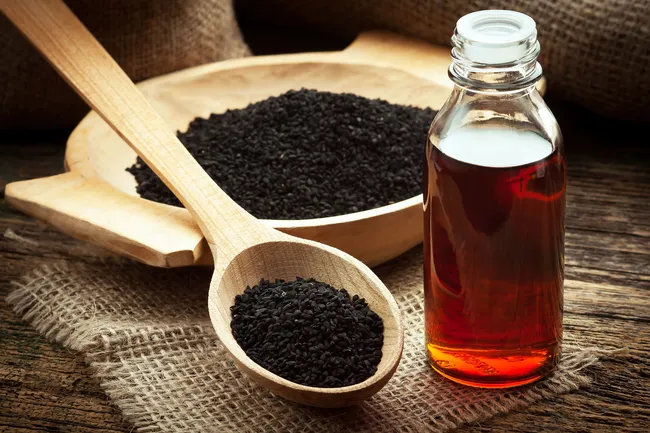

.png)

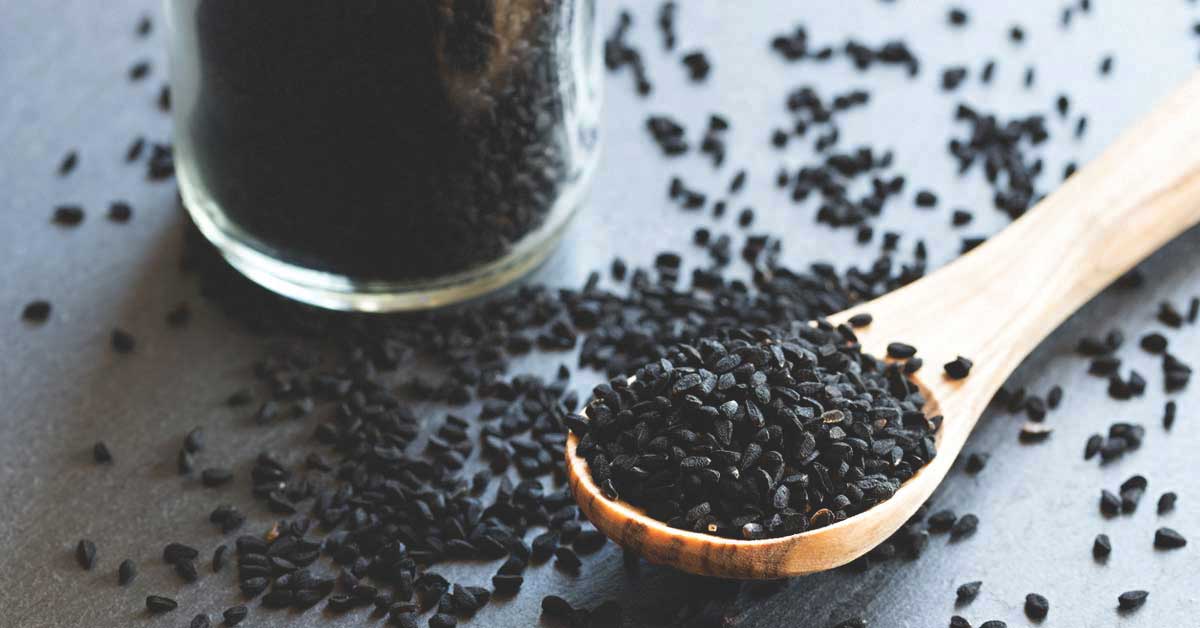
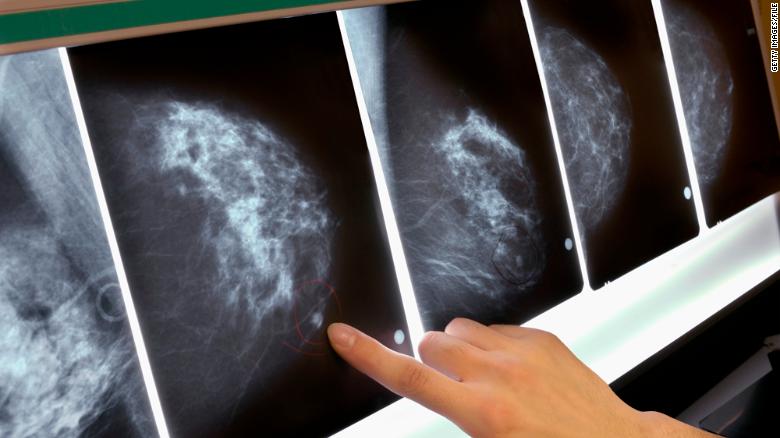

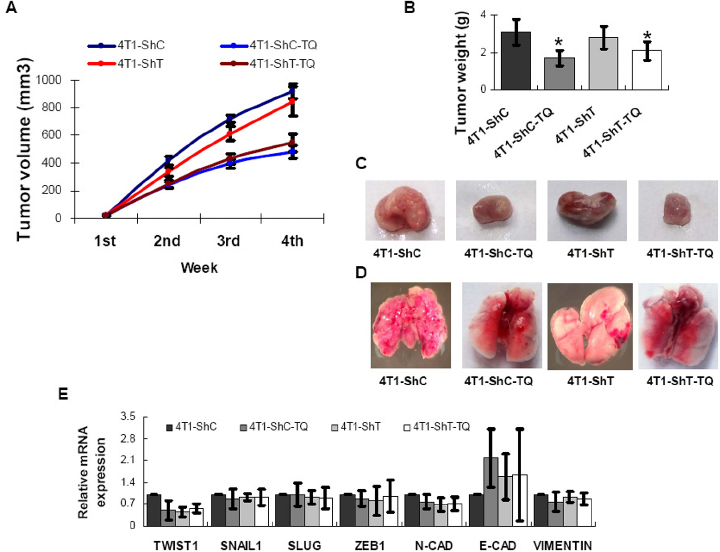
Comments
Post a Comment